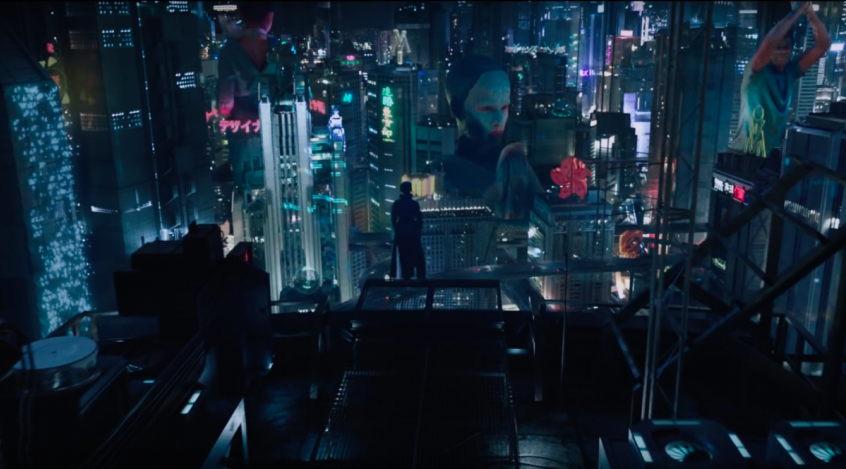
Ghost in the Shell (Paramount) ***
Can a robot have a soul? Would you replace your failing eyes with HD, night vision-enabled machines? Would you still be you if you did? These don't seem like particularly important questions now, but in the world of Scarlett Johansson's new anime-remake Ghost in the Shell, they're absolutely vital.
Expectations were low, and heckles high about the decision to film a live action Hollywood remake of Mamoru Oshii's classic anime film, and particularly because white actress Johansson had been cast in the central – Asian – role. In fact, TV commercial director Rupert Sanders has managed to create a fast-moving, visually-stunning sci-fi film which, while it contains very little in terms of originality, is both an entertaining and thought-provoking watch.
Like its source material, Ghost in the Shell tells the story of a woman who wakes up in a new robotic body after apparently suffering a near-fatal accident that has destroyed all but her brain. It just so happens that the new android casing she's been given is that of a supremely powerful killing machine, but the important thing – she keeps being told – is that it's still her in there. Her soul, or 'ghost' as the film's dialogue terms it, is still intact inside the robotic 'shell'.
While the 1995 classic (which part-inspired The Matrix), was half action film, half philosophical discussion about the nature of being, Sanders' 2017 version is heavily weighted toward the first of those two gears. Johansson and her cyber-crime-fighting team mates blast their way through a surprisingly easy-to-follow plot, while the deeper moments of reflection are kept to a minimum. They are present however, and the film still manages to pose a couple of very interesting, and very theological ideas.
The nature of a person's 'ghost' or soul is one of them. The film proposes the idea that in spite of more humanistic perspectives, the soul is a real thing, and is somehow either accessed by, or present in, the human brain. It's the thing that makes us, us – and in a thought which chimes with Christian thought on the matter, it's not necessarily confined to the physical body we were born with.
The other fascinating question at the core of the film is around what happens when we start playing God and enhancing the created form. In the highly advanced world in which the film is set, the influence of technology is seen at every turn, with huge holographic figures acting as advertisements which invite people into a lifestyle of 'enhancement.' It seems that almost everyone has had parts of their body replaced with better, stronger digital versions – one character has even had a synthetic liver fitted to enable his hard-drinking lifestyle. Yet there's a sense that while the ultimate application of technology might be the extension of human life, this may not necessarily be desirable. There's a darkness – an emptiness to this idea, reducing the human body to nothing more than a 'shell' which can be replaced or even upgraded.
The film's most interesting questions aren't really answered (nor is the issue of why the male characters all run around in big trench coats while Scarlett is continually 12A-naked in a flesh-coloured bodysuit that makes her look like a stripped-off Barbie doll). It does a good job though of offering a prophetic challenge to our world's current fascination with constantly-upgraded technology. Johansson's experience of life after death is on some level a chilling nightmare, and on our culture's current trajectory, not one that might always remain in the realms of fiction.
Martin Saunders is a Contributing Editor for Christian Today and the Deputy CEO of Youthscape. Follow him on Twitter @martinsaunders.













